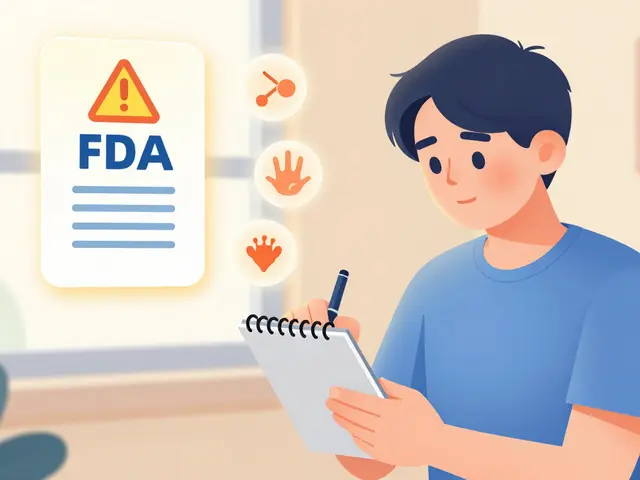Dietary Tips: Simple, Safe Changes That Improve Health Fast
Want better energy, steadier weight, or fewer stomach problems without a major diet overhaul? Small, specific changes beat big rules. Here are practical tips you can use this week, plus simple safety steps when you add supplements or take medications.
Easy swaps that lower calories and boost nutrition
Swap one refined grain a day for a whole grain: swap white bread for oats or whole-wheat wraps. You’ll get more fiber and feel fuller longer. Choose beans, eggs, or Greek yogurt as snacks instead of chips—protein keeps hunger away and stabilizes blood sugar.
Half your plate: make half vegetables, one quarter lean protein, one quarter whole grains. This visual trick keeps portions sensible without counting calories. Use colorful veggies—spinach, peppers, carrots—so you get different vitamins and minerals without extra effort.
Drink water first. Thirst often masks as hunger. Before reaching for a snack, drink a glass of water and wait 10 minutes. If you’re still hungry, pick a protein-rich bite.
Plan two simple meals each week you can repeat: grilled chicken and roasted veggies, or a tuna-and-bean salad. Repeating saves decision fatigue and makes it easier to stick to healthy patterns.
Smart supplement picks and food–drug safety
If you want supplements, start with a clear goal: immunity, digestion, sleep, or inflammation. Supplements mentioned on GenericDay—like buck’s-horn plantain or wild thyme—have niche uses. Buck’s-horn plantain may support digestion and mucous membranes; wild thyme can help mild respiratory symptoms. Arnica is often used for muscle soreness, but it’s mostly topical—not a magic oral supplement.
Buy from reputable brands and check third-party testing when possible. Look for batch numbers and clear dosing on the label. If a product claims to cure everything, skip it.
Watch for drug–food interactions. Warfarin (Coumadin) reacts with high-vitamin-K foods like kale and spinach—keep your intake steady. Grapefruit can raise blood levels of some meds, including verapamil (Calan). Avoid alcohol with sedatives such as temazepam. If you take prescription meds, ask your pharmacist or doctor before adding new supplements.
Keep a simple daily checklist: water, two servings of vegetables, one protein-rich snack, and a 20-minute walk. Track just those four things for a week—small wins stack fast.
Need specific guidance? Look for articles on GenericDay covering herbs, inhaler options, or drug safety to match your goals. And when in doubt, ask a healthcare provider: better safe than sorry, especially when mixing pills and supplements.
Try one swap today and one safety check this week. Small, safe steps move the needle more than drastic diets ever will.
This article explores whether the popular keto diet can be beneficial or detrimental for those suffering from erosive esophagitis. We delve into the basic principles of the keto diet, examine how it may impact esophageal health, and offer practical tips for managing symptoms. With the right adjustments, keto might just surprise you as a viable option for easing digestive woes.



